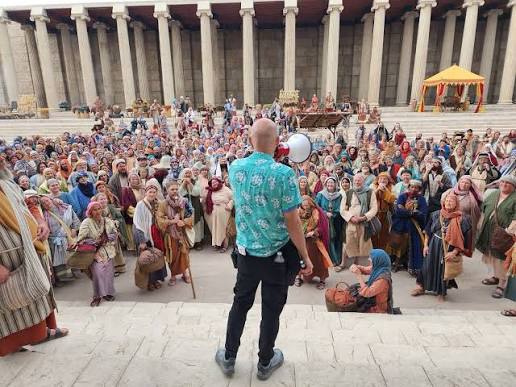In a notable judgment, a US appeals court has sided with President Donald Trump, enabling him to maintain command over National Guard troops in Los Angeles amid significant opposition from local government officials and California Governor Gavin Newsom. The situation escalated when Trump dispatched the troops to address unrest linked to his immigration policies, prompting local leaders to protest the move, calling it an unnecessary provocation.
On Thursday, the three-judge panel overruled a previous decision by Judge Charles Breyer, who had ruled that Trump's mobilization of the National Guard did not comply with the federal law governing such deployments. The earlier ruling ordered that control of the California National Guard be returned to Governor Newsom, but stayed the decision, allowing time for an appeal.
The latest ruling emphasized that Trump’s choice to bypass the Governor in issuing the federalization order did not impede his authority to call up the National Guard. Trump celebrated the court's decision as a “big win,” asserting that this ruling extends far beyond California, stating that his administration is prepared to protect cities and communities across the country.
In contrast, Newsom expressed strong disapproval, arguing that the court's decision did not grant Trump unchecked authority over the National Guard, insisting that the law must be adhered to and cautioning against what he describes as an authoritarian misuse of military resources against citizens.
The court's ruling permits the continued presence of around 4,000 troops in Los Angeles, tasked primarily with protecting federal immigration agents amid ongoing raids to detain undocumented individuals. Furthermore, Trump authorized the deployment of 700 Marines to the city, disregarding Governor Newsom's calls for restraint. This deployment represents a rare instance in modern history where a president has mobilized troops without the consent of a governor, harkening back to civil rights interventions over fifty years ago.
On Thursday, the three-judge panel overruled a previous decision by Judge Charles Breyer, who had ruled that Trump's mobilization of the National Guard did not comply with the federal law governing such deployments. The earlier ruling ordered that control of the California National Guard be returned to Governor Newsom, but stayed the decision, allowing time for an appeal.
The latest ruling emphasized that Trump’s choice to bypass the Governor in issuing the federalization order did not impede his authority to call up the National Guard. Trump celebrated the court's decision as a “big win,” asserting that this ruling extends far beyond California, stating that his administration is prepared to protect cities and communities across the country.
In contrast, Newsom expressed strong disapproval, arguing that the court's decision did not grant Trump unchecked authority over the National Guard, insisting that the law must be adhered to and cautioning against what he describes as an authoritarian misuse of military resources against citizens.
The court's ruling permits the continued presence of around 4,000 troops in Los Angeles, tasked primarily with protecting federal immigration agents amid ongoing raids to detain undocumented individuals. Furthermore, Trump authorized the deployment of 700 Marines to the city, disregarding Governor Newsom's calls for restraint. This deployment represents a rare instance in modern history where a president has mobilized troops without the consent of a governor, harkening back to civil rights interventions over fifty years ago.





















